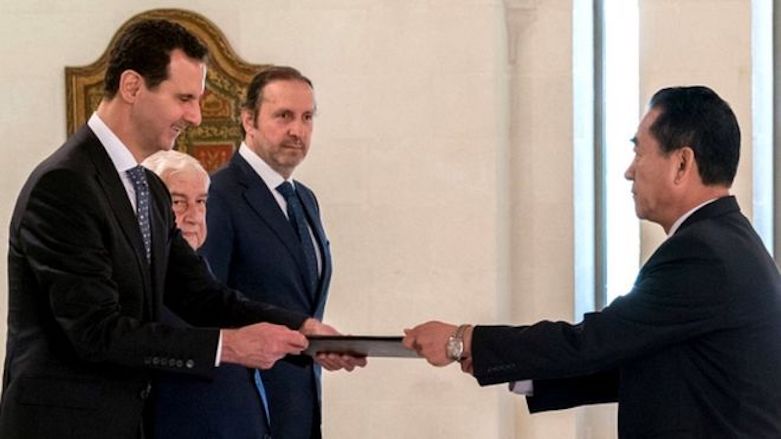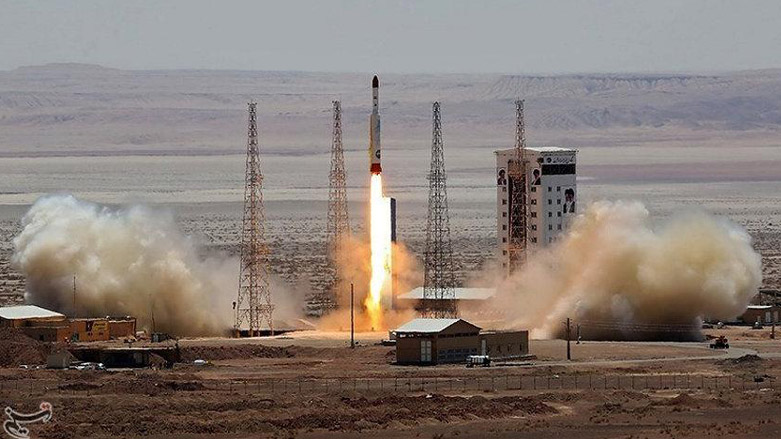Bashar al-Assad to visit North Korea, Pyongyang says

WASHINGTON DC (Kurdistan 24) – North Korea’s official state media reported on Sunday that Syrian President Bashar al-Assad will visit the isolated Asian country, whose leader, Kim Jong-un, is to meet US President Donald Trump on June 12.
Syrian media, however, has not yet announced such a visit, nor even commented on the North Korean report.
If the meeting occurs, it will be highly unusual. Assad rarely leaves Syria, while no foreign head of state has visited North Korea, since Kim assumed office in 2011, upon the death of his father.
“I am going to visit the DPRK [Democratic People’s Republic of Korea] and meet HE [His Excellency] Kim Jong-un,” North Korea’s official Korean Central News Agency (KCNA) quoted Assad as saying.
“The world welcomes the remarkable events in the Korean peninsula brought about recently by the outstanding political caliber and wise leadership of HE King Jong-un,” the news agency claimed.
“I am sure that he will achieve the final victory and realize the reunification of Korea without fail,” Assad reportedly said.
Is that how one dictator speaks of another? The two rogue regimes have long been allies, and North Korea has played a key role in the development of Syria’s unconventional weapons program.
In 2007, Israel bombed a nuclear reactor in Syria’s Deir ez-Zor region which was being constructed with North Korean assistance. Reportedly, 10 North Korean scientists died in the attack.
In 2017, Pyongyang earned some 200 million dollars by shipping equipment to Syria in violation of international sanctions, which were orchestrated by Washington in an effort to cut off income to the North Korean regime, The Guardian reported.
In addition, as a leaked UN report revealed, North Korea exported some forty items to Syria for its missile and chemical weapons programs over a five-year period.
In the run-up to the US-North Korean summit, several parties, including Japan, have expressed concern that the US may not be sufficiently rigorous in demanding an end to North Korea’s nuclear program.
However, US Secretary of Defense, Jim Mattis, affirmed on Sunday at an Asian Security Conference, that sanctions on North Korea would only be relaxed after “verifiable and irreversible steps” toward Pyongyang’s denuclearization.
Yet, as The Guardian noted, the US has said nothing about North Korea’s chemical and biological weapons programs.
Biological weapons are particularly dangerous, especially in light of recent advances in biotechnology.
In 2016, the Director of National Intelligence, James Clapper, released a report that placed gene editing technology on a par with nuclear weapons as a threat to US national security.
Last month, Secretary of State Mike Pompeo expressed his concern about biosecurity in a hearing of the House Foreign Affairs Committee.

